Top 10 Watson College stories of 2023
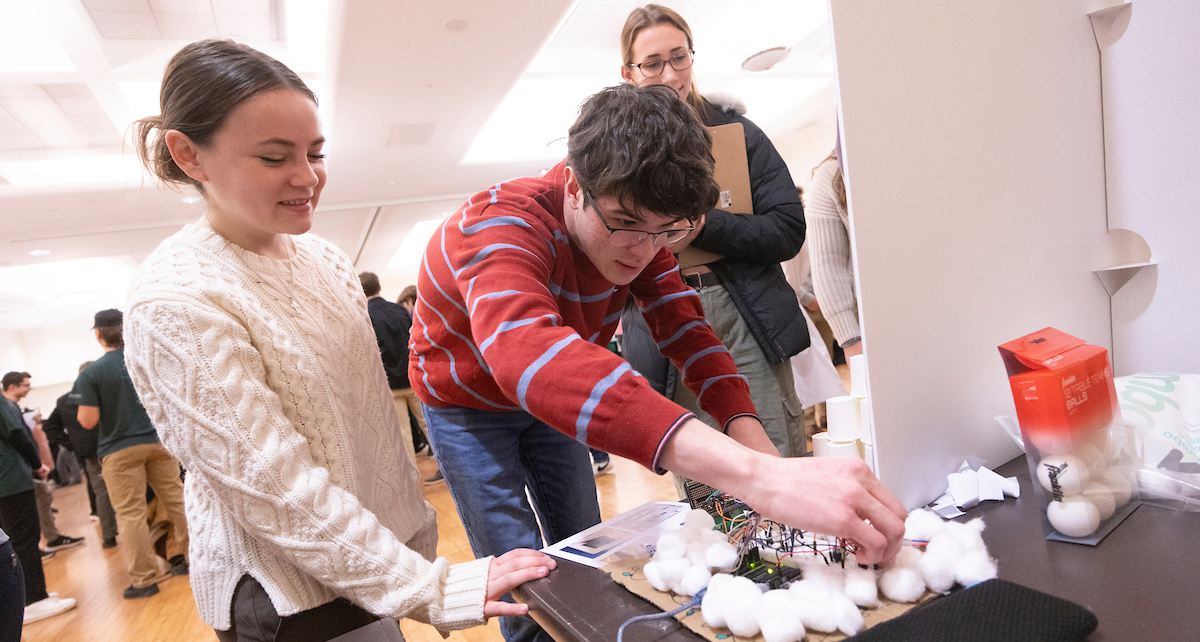
2023 was a big year for the Thomas J. Watson College of Engineering and Applied Science. We celebrated our 40th anniversary in June, and there were a lot of success stories to share from faculty and students.
Here are the most popular Watson College stories from the past 12 months, according to readers.
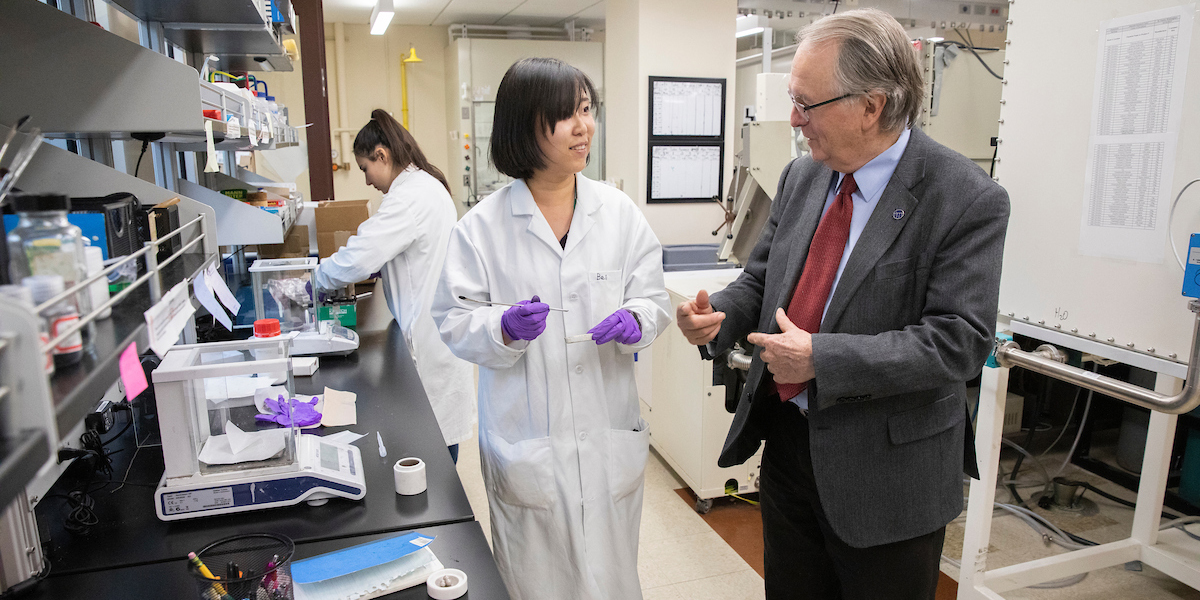
Binghamton researchers among top 2% in the world
More than 30 Binghamton University researchers — including 11 from Watson College — were honored for their work by a Stanford University study that looks at the impact of scientists worldwide.
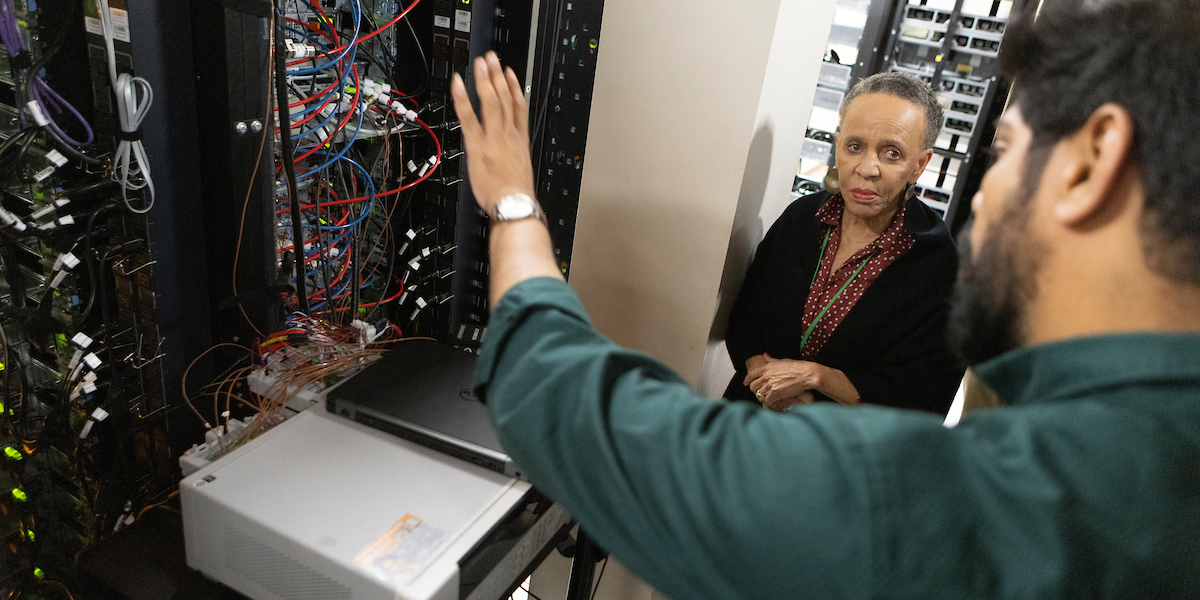
Binghamton University and six HBCUs forge new alliance
In collaboration with the Thurgood Marshall College Fund, Binghamton University and Watson College announced a New Educational and Research Alliance (newERA) with six historically Black colleges and universities (HBCUs).
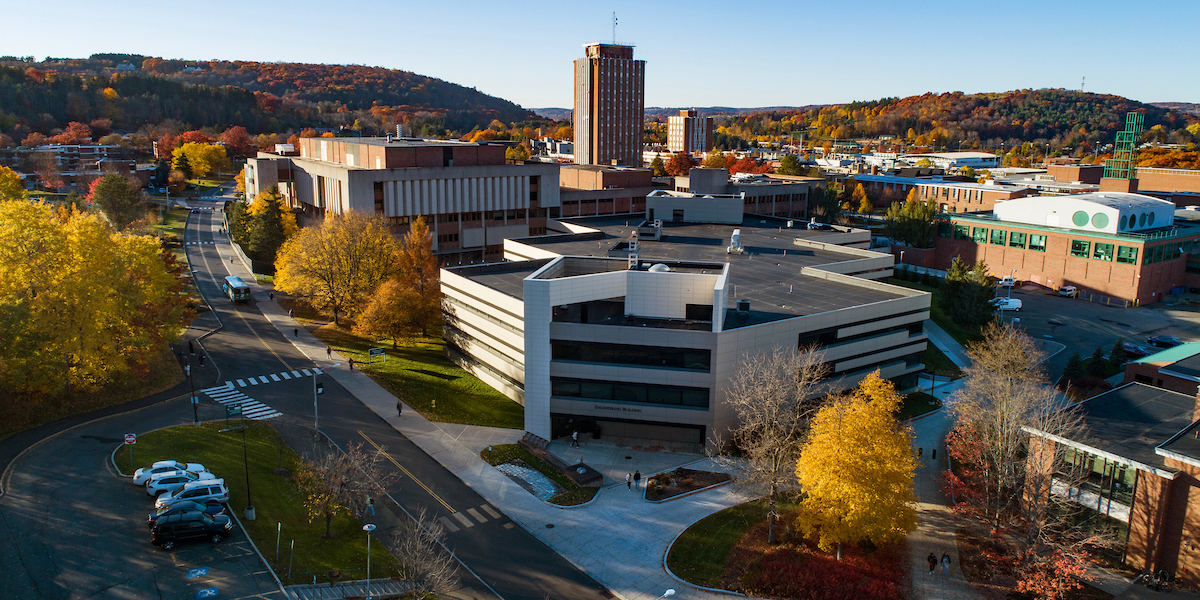
Watson College looks ahead to next 40 years and beyond
For our anniversary, we talked to just some of the people who made it possible, and we discussed where we’re headed next
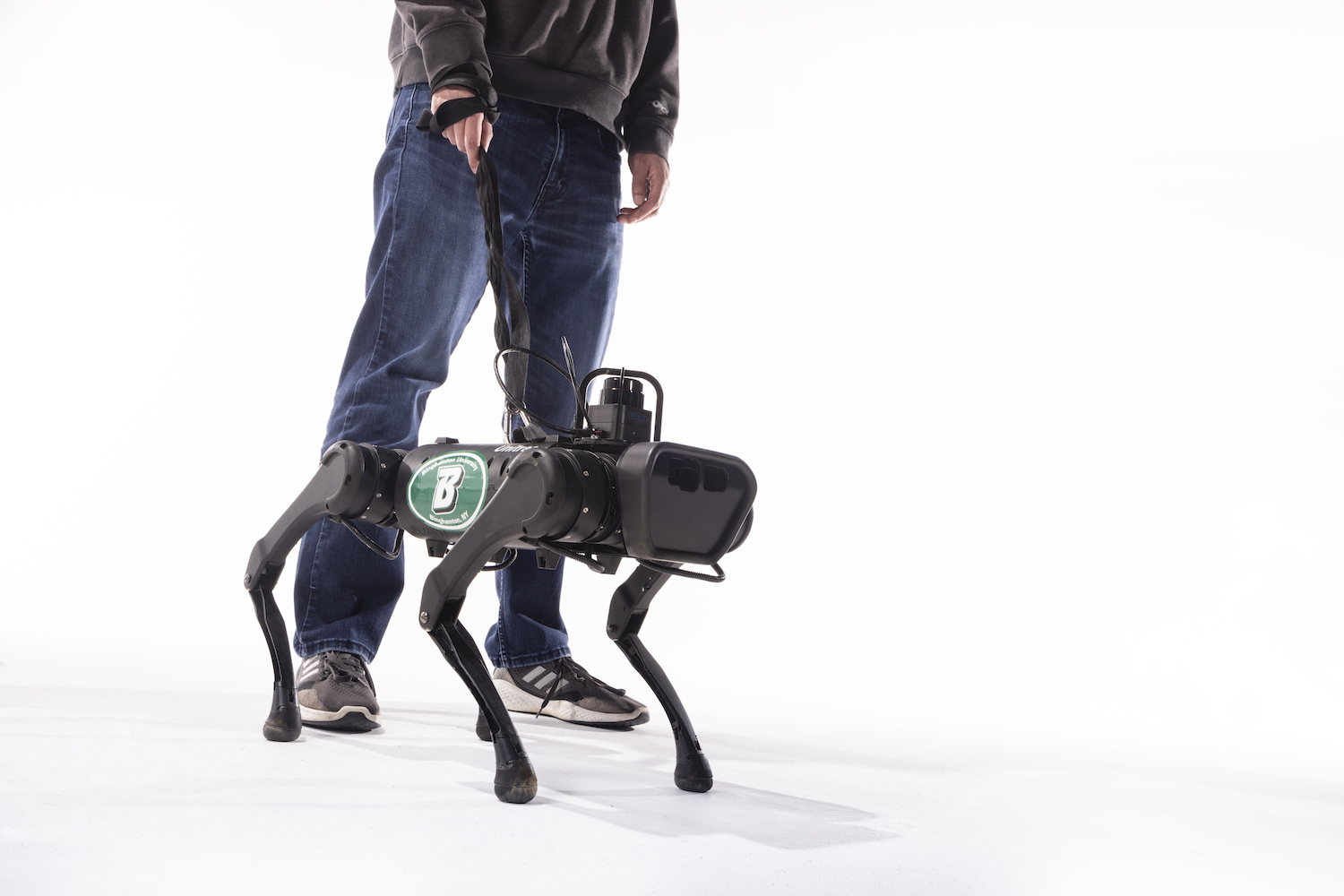
Binghamton engineers program robotic seeing-eye dog
Assistant Professor Shiqi Zhang, PhD student David DeFazio and junior Eisuke Hirota have been working on a robotic seeing-eye dog to increase accessibility for visually impaired people.
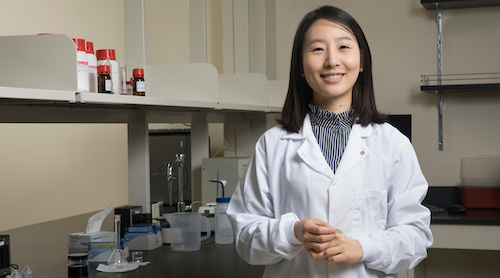
Assistant professor wins NSF award to develop better biosensors
Assistant Professor Ahyeon Koh received a five-year, $500,120 National Science Foundation CAREER Award to continue her work on projects that could lead to smart bandages and other medical advances.
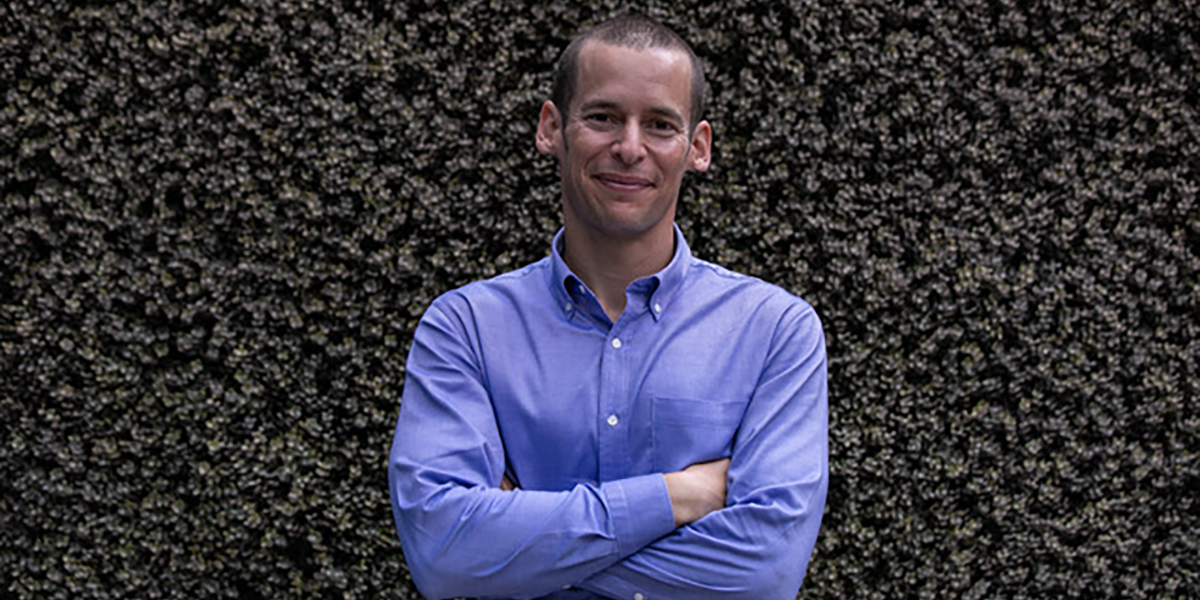
Gershenson to join faculty as SUNY EIP professor
As part of the SUNY Empire Innovation Program (EIP), Professor Carlos Gershenson joined Watson College’s Department of Systems Science and Industrial Engineering. Throughout his academic career, Gershenson has utilized computer science, evolutionary systems and complex systems science to address healthcare, transportation, governance, education, cybersecurity and more.

Food additive nanoparticles could negatively affect your gut health
Common food additives known as metal oxide nanoparticles may have negative effects on your gut health. Gretchen Mahler, professor of biomedical engineering and interim vice provost and dean of the Graduate School, worked in collaboration with Cornell University researchers to study five of these nanoparticles.
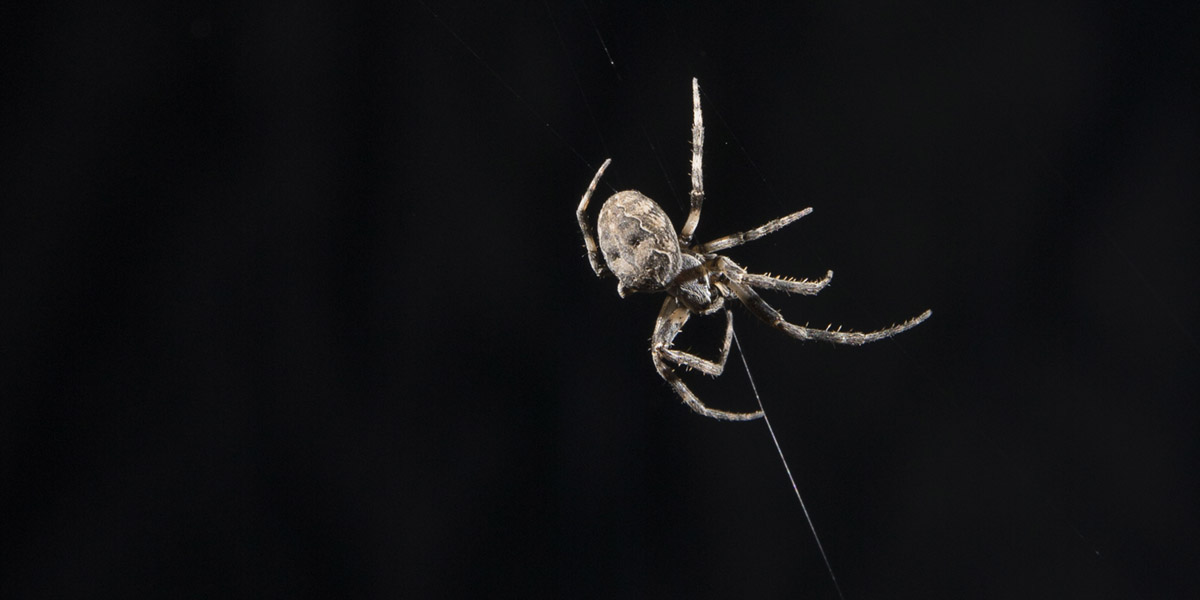
New study shows spiders use webs to hear
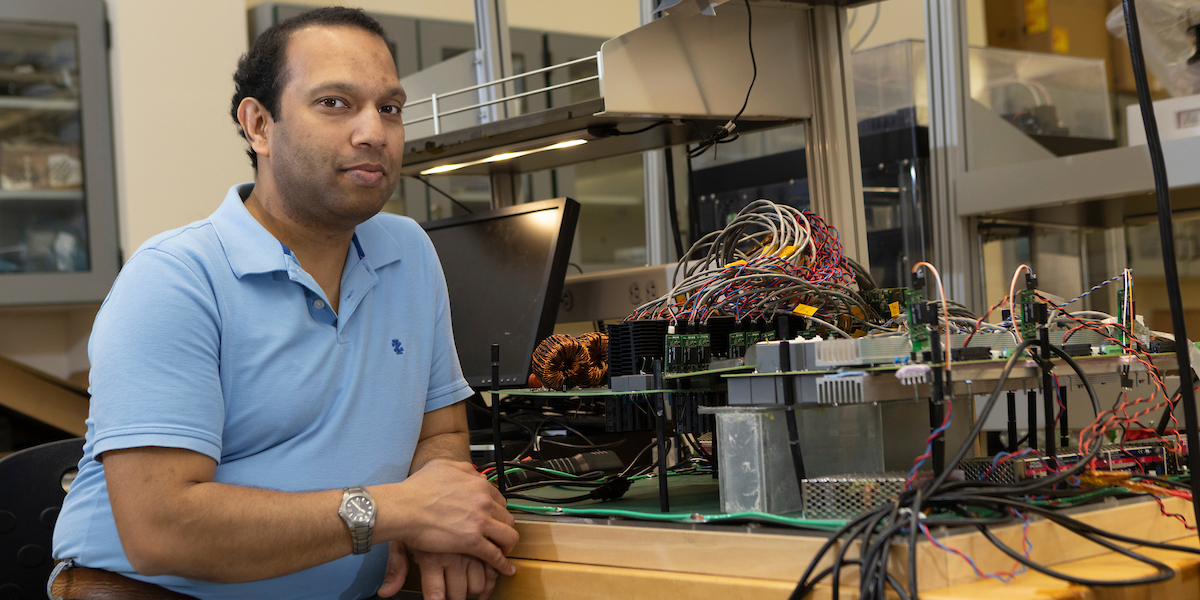
Professor hopes to revolutionize power transformers
Assistant Professor Pritam Das — a Department of Electrical and Computer Engineering faculty member — received a $537,959 National Science Foundation CAREER Award to rethink how solid-state transformers are realized and function.
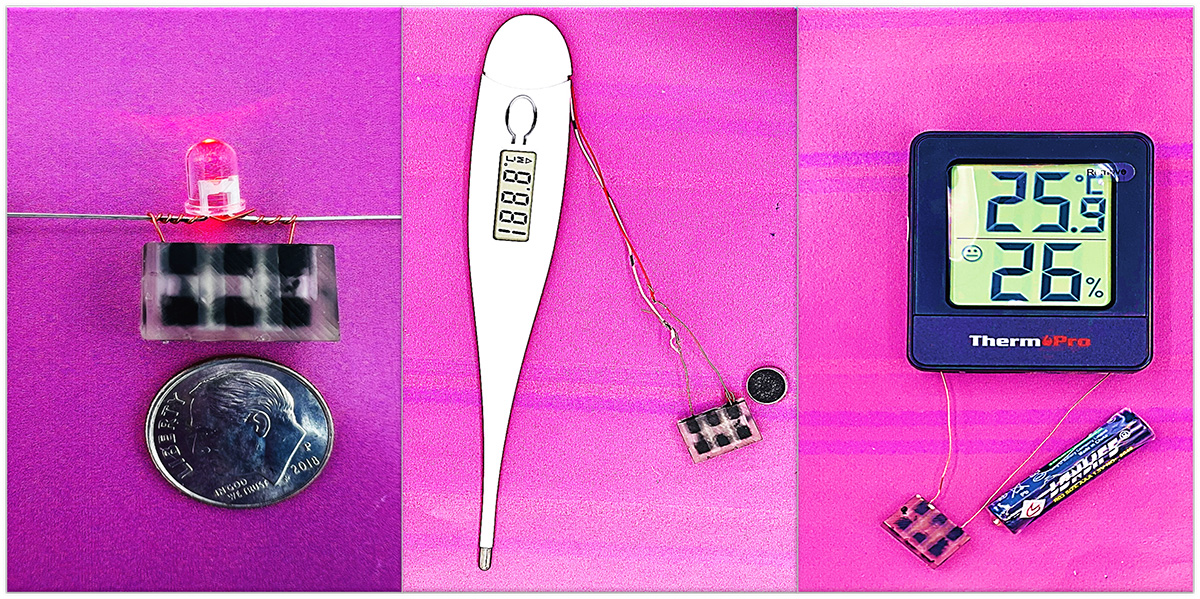
Tiny biobattery with 100-year shelf life runs on bacteria
Professor Seokheun “Sean” Choi used spore-forming bacteria similar to the previous ingestible version to create a biobattery that potentially would still work after 100 years.
To read more Watson College news, go to www.binghamton.edu/news/stories/category/watson.

